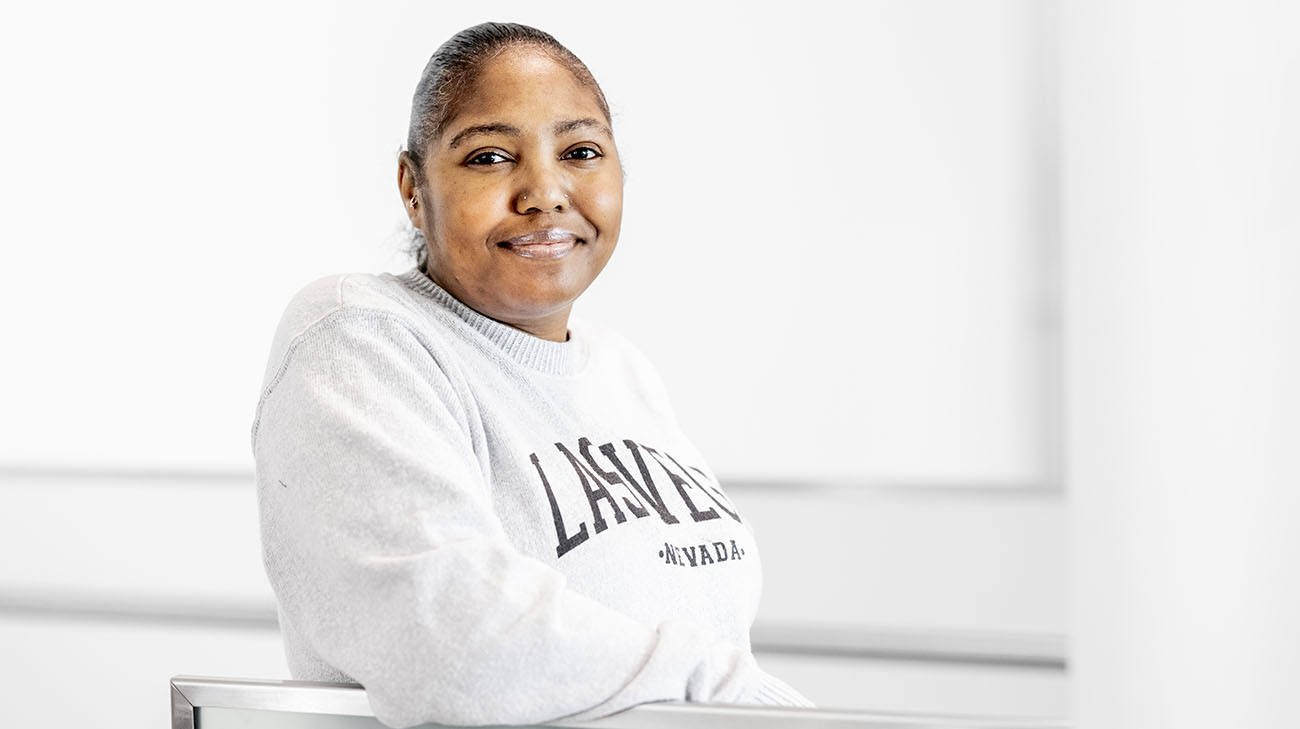
Ashley Brown, a mother of two and grandmother of three, still finds it hard to believe she had a double-organ transplant, in early 2025, at the age of 40.
Diagnosed with diabetes at 18, Ashley is getting used to not worrying about her blood sugar because the transplant gave her a second chance at life.
Ashley, who lives in North Olmsted, Ohio, was the first patient at Cleveland Clinic to undergo a multi-port robotically assisted kidney and pancreas transplant.
According to Alvin Wee, MD, program director of Cleveland Clinic’s Kidney Transplant Program, Ashley had type 1 diabetes. It is an autoimmune disease in which a person’s immune system attacks and destroys insulin-producing cells in the pancreas.
Up to 10% of people who have diabetes have type 1, which is usually diagnosed in children and young adults.
Ashley remembers a long journey trying to manage her diabetes through diet, lifestyle changes and insulin shots. “Sometimes, I couldn’t give myself the shots,” she says. “It was fear, and I couldn’t block it out. I had panic attacks.”
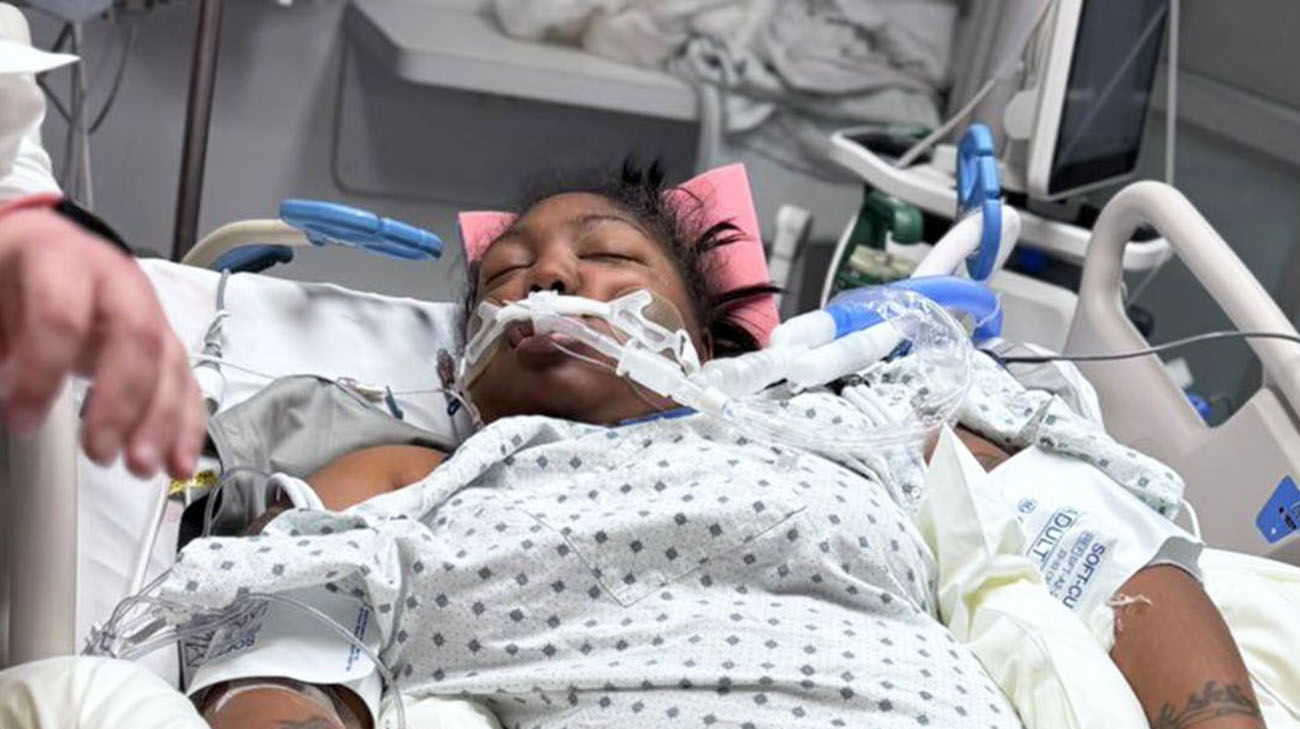
Ashley after undergoing her transplant surgery at Cleveland Clinic. (Courtesy: Ashley Brown)
Ashley was hospitalized several times with DKA, diabetes-related ketoacidosis, a life-threatening complication of diabetes from a lack of insulin in the body. “I would be in the hospital for about a week. It happened a lot.”
After her daughters were born, Ashley focused on better managing her diabetes. She found doctors at Cleveland Clinic who were willing to work with her. “They explained things in detail,” she says. “They didn’t just tell me what to do.”
During that time, Ashley was referred to a nephrologist. Diabetes and high blood pressure are two common causes of chronic kidney disease, which worsens over time.
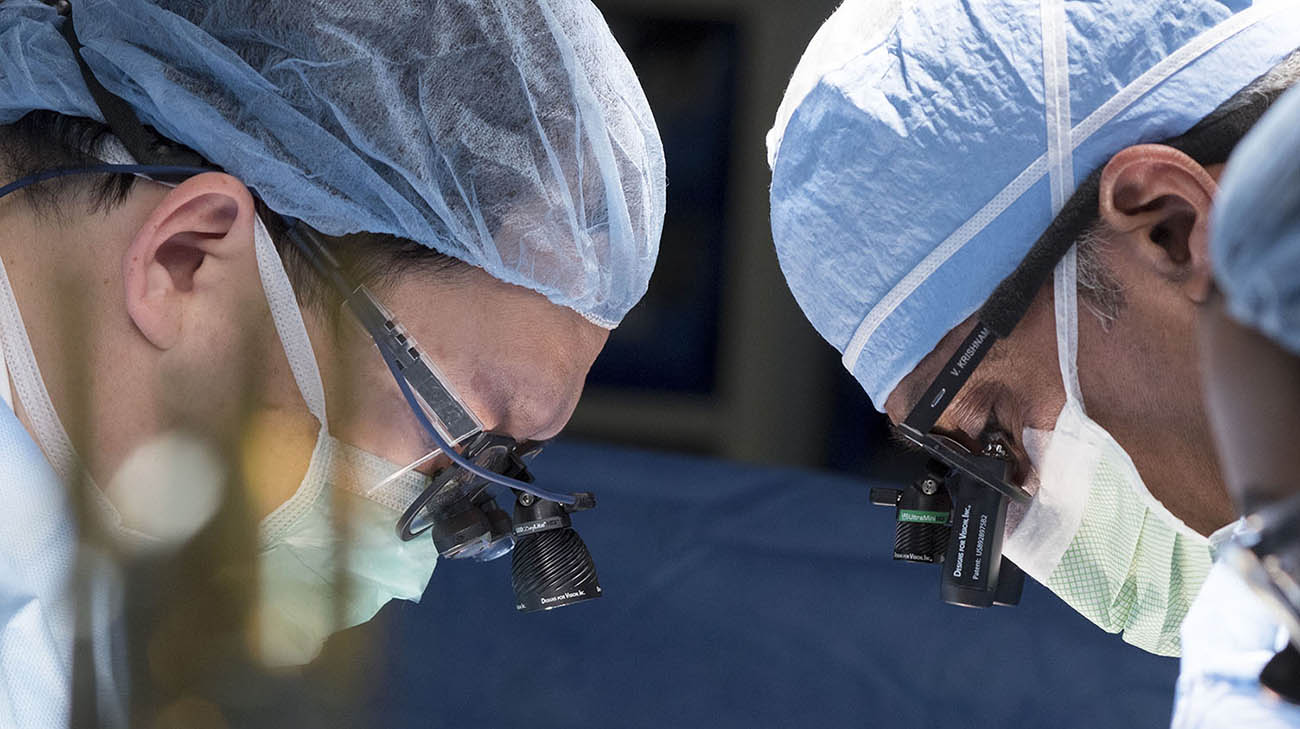
Drs. Wee and Krishnamurthi performing a surgery at Cleveland Clinic. (Courtesy: Cleveland Clinic)
Ashley was entering end-stage kidney failure and needed kidney dialysis or a transplant to stay alive. “I was resistant to dialysis at first because I was in denial,” Ashley says.
In February of 2021, Ashley started peritoneal dialysis, a home-based treatment for kidney failure that filters waste products and excess fluids from the blood. Peritoneal dialysis uses the lining of the belly or peritoneum as a natural filter to remove waste, toxins and extra water from the body.
Ashley had a catheter surgically inserted in her lower left abdomen. She would connect tubing from the catheter to the dialysis machine before going to bed. She did that every night for eight hours for almost three years. “It was very limiting as to what I could do,” she says, having to transport the machine and supplies if she was not home in the evening.
There were challenges with sleeping, too, which made going to work in the morning as a part-time medical assistant difficult.
Ashley says she sought mental health therapy because she felt frustrated and was not in a good place at the time. Her family also helped her manage challenging times.
“I have a strong support system,” she says, including her mother, her daughters and her fiancé, whom she’s known for 20 years. “They've seen the best and worst of me through this whole process.”
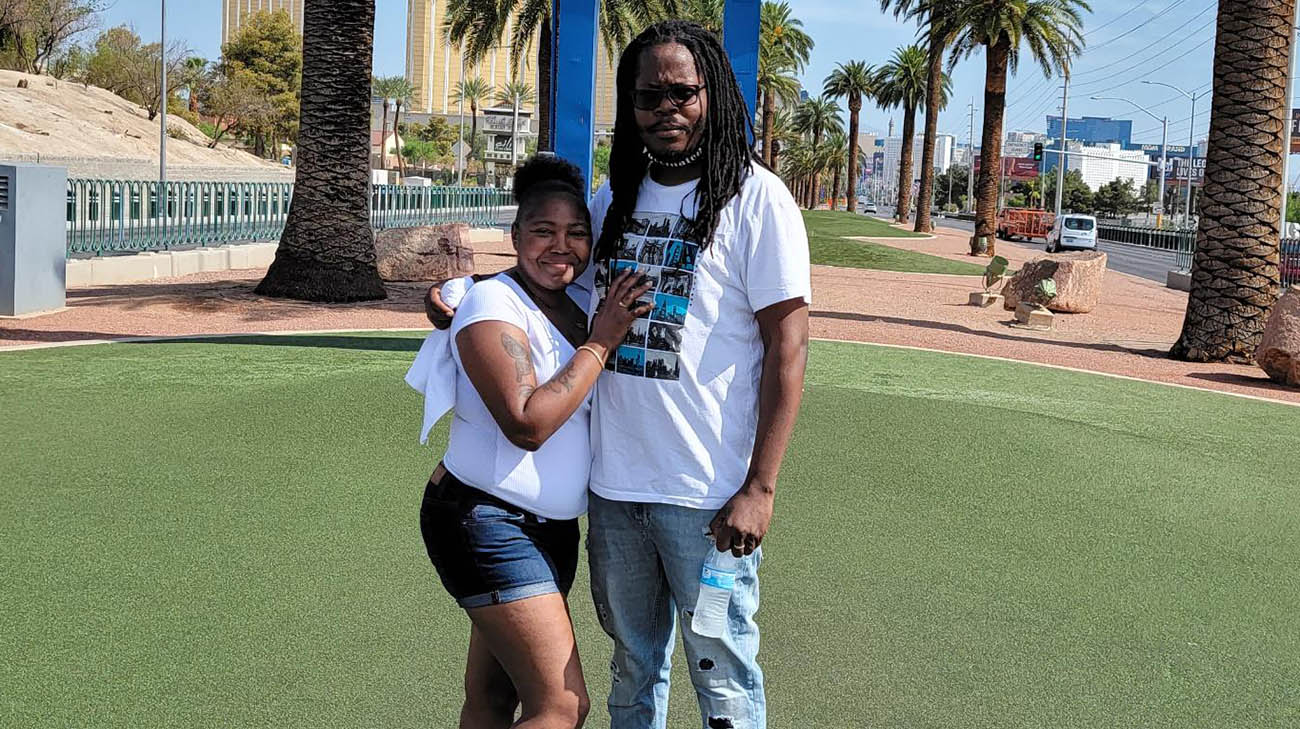
Ashley with her fiancé, David. (Courtesy: Ashley Brown)
Realizing transplant surgery would give her more time with her daughters and grandchildren, Ashley started the process of getting approved to be put on the transplant waiting list for both kidney and pancreas.
After about a year, a viable kidney and pancreas became available from the same donor.
On Jan. 21, 2025, the transplant team, which included Dr. Wee, Venkatesh Krishnamurthi, MD, Mohamed Eltemamy, MD, and Yi-Chia Lin, MD, performed Cleveland Clinic’s first multi-port robotically assisted kidney and pancreas transplant surgery in just four hours. The device’s robotic arms hold small surgical instruments while the surgeon moves the arms using controllers and a viewing screen.
The incision for both organs was 6-7 cm. In addition, four smaller incisions (8 mm) were made for the “arms” of the robot.
“A kidney/pancreas transplant is a major surgery,” Dr. Wee adds there are multiple blood vessels that need to be reattached and bowels that need to be connected.
Robotically assisted kidney pancreas surgery has many benefits. Incisions are smaller leading to shorter recovery time and a substantial reduction in the use of opioids after surgery.
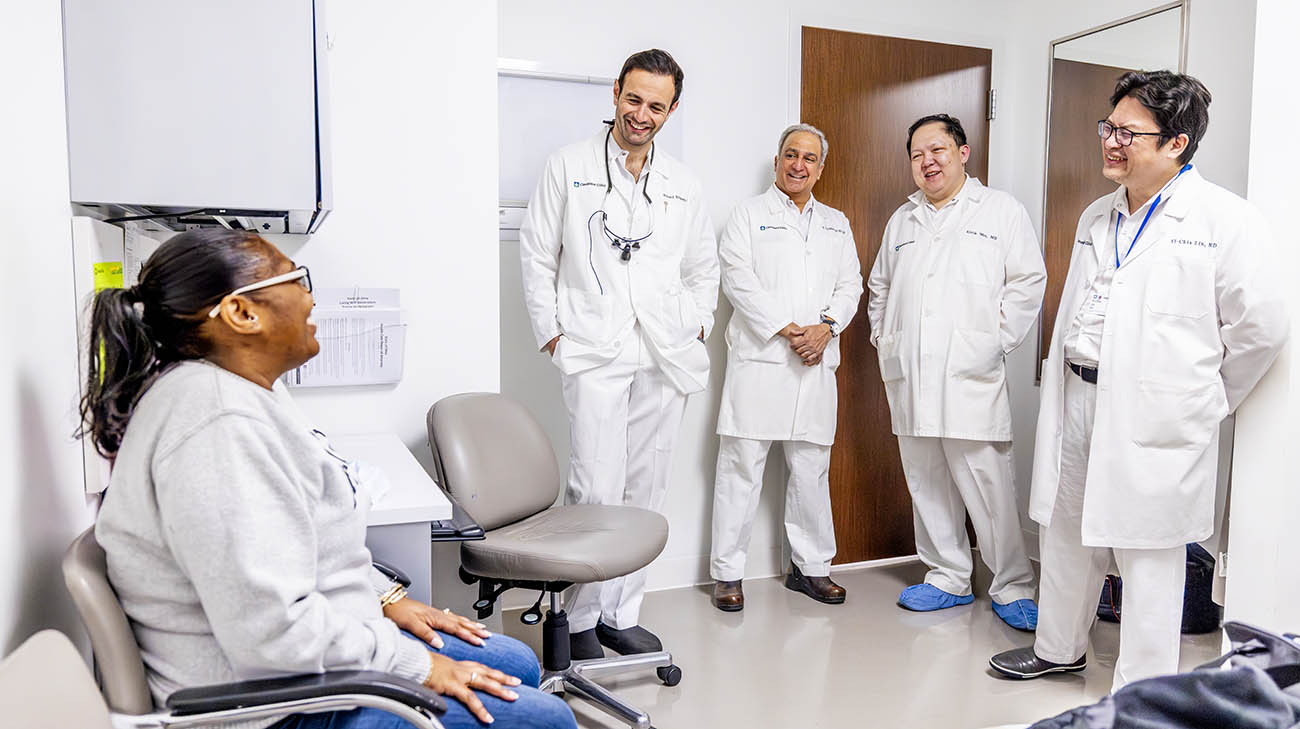
Ashley during a follow-up appointment with Drs. Eltemamy, Krishnamurthi, Wee and Lin (left to right). (Courtesy: Cleveland Clinic)
Dr. Eltemamy, the lead robotic surgeon says, “The donated organs started working right away. Ashley’s sugar is well controlled, eliminating the need for insulin. Simultaneously she didn’t need to undergo dialysis.”
Ashley’s care team followed up with her in recovery and at a two-week post-surgery appointment. “It was calming,” she says. “They cared enough to check on me. It felt like I was placed in the right hands for this surgery.”
Dr. Wee shares, “Our team believes in second chances. An unspoken tragedy can also spark hope. While we cannot alter the loss of one life, we can significantly impact another through the profound act of organ donation and transplantation.”
Ashley says she is focused on taking care of herself and her new organs. She is grateful to the organ donor and their family. “It is a blessing,” she says. “They decide to donate organs, so people like me have a chance to continue living.”
Related Institutes: Glickman Urological & Kidney Institute

